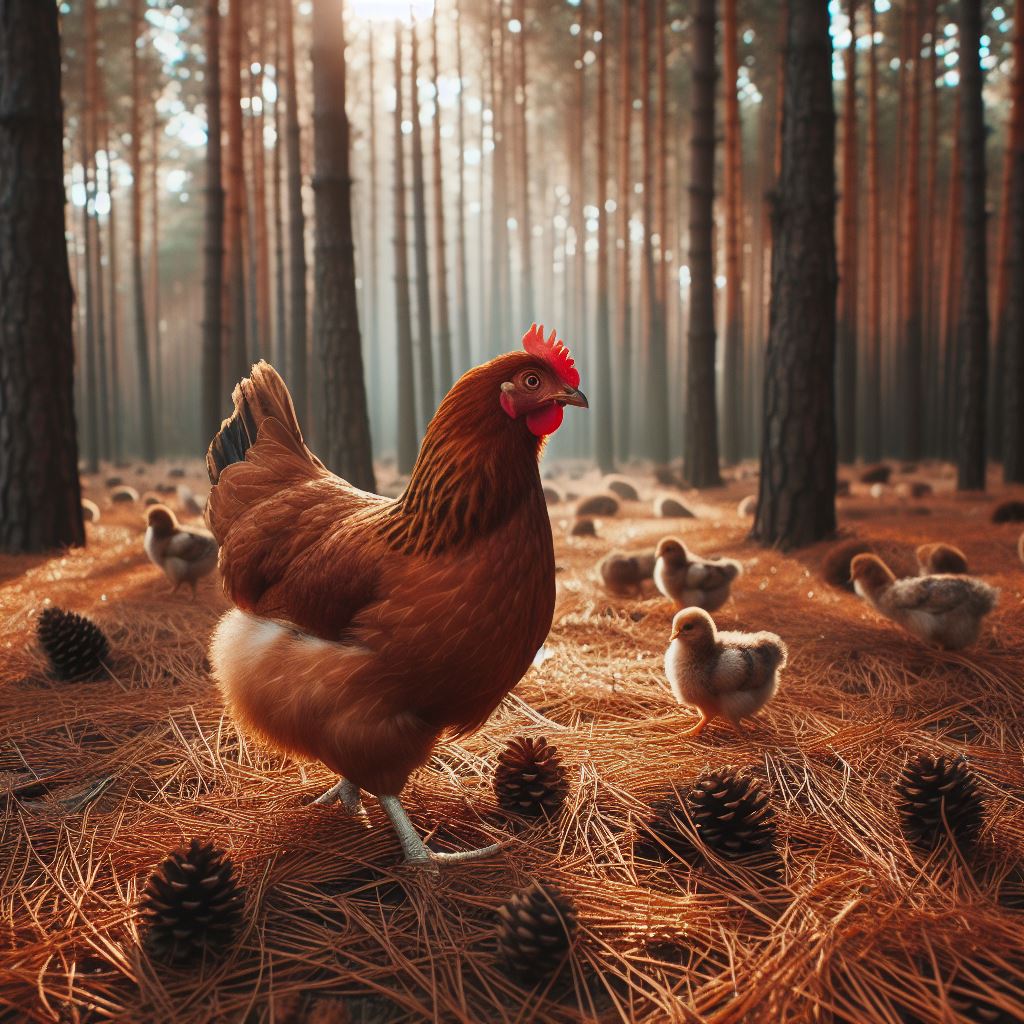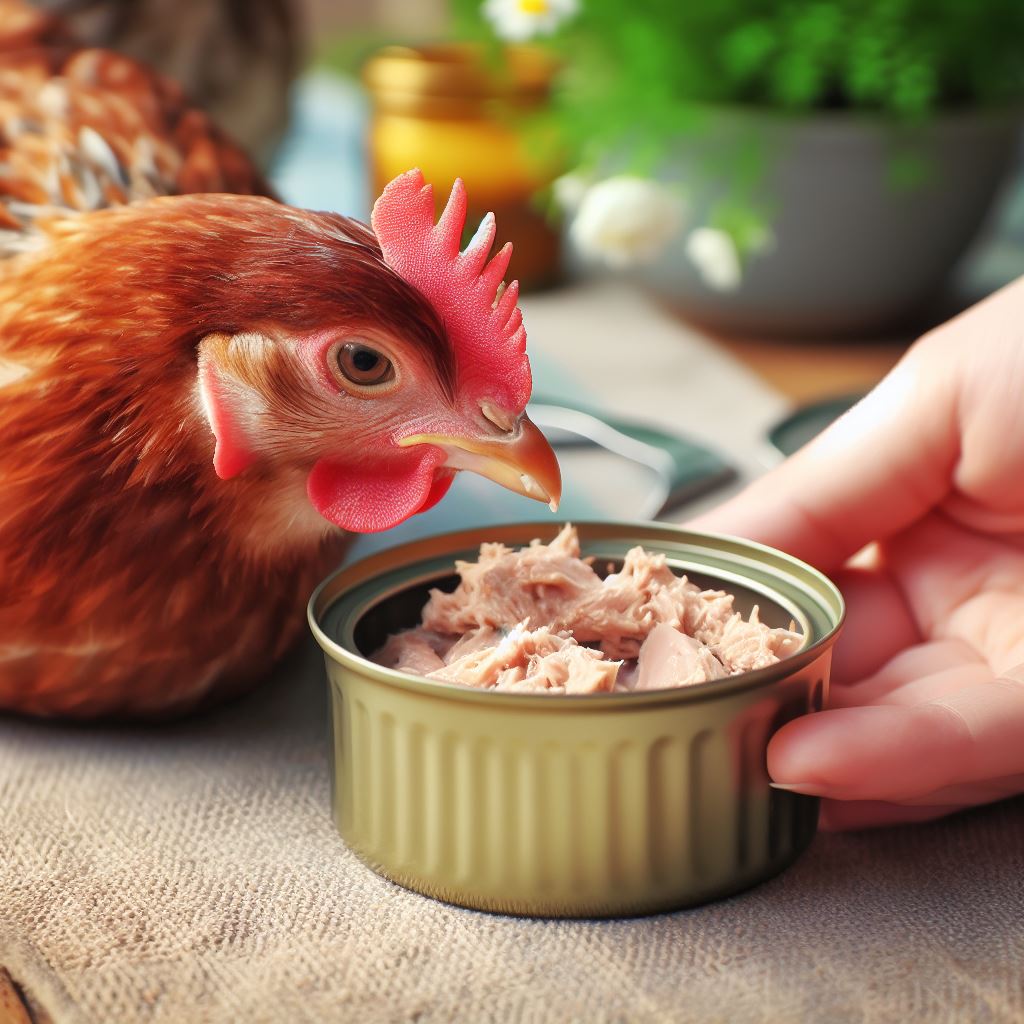Can Chickens Eat Grits?

Table of content:
Can chickens eat grits? Grits can make a tasty and nutritious treat for chickens in moderation. Here’s what you need to know about feeding grits to chickens.
Key Takeaways:
- Grits are safe for chickens to eat in moderation
- They provide carbohydrates, calcium and other nutrients chickens need
- Cooked grits are easier for chickens to digest than uncooked
- Don’t feed chickens exclusively grits – variety is important
- Limit grits to occasional treats, not daily meals
Grits, a porridge made from ground corn, can be a flavorful addition to a flock’s diet when included as an occasional treat. This traditional Southern breakfast dish can offer key nutrients like carbohydrates, fiber, and calcium. Chickens that enjoy exploring new foods may gobble up these softened corn kernels.
With proper preparation and moderation, grits can be a safe, nutritious snack for chickens. But there are also some downsides to be aware of before serving grits. As with any treat, grits should not become a staple in a chicken’s daily diet.
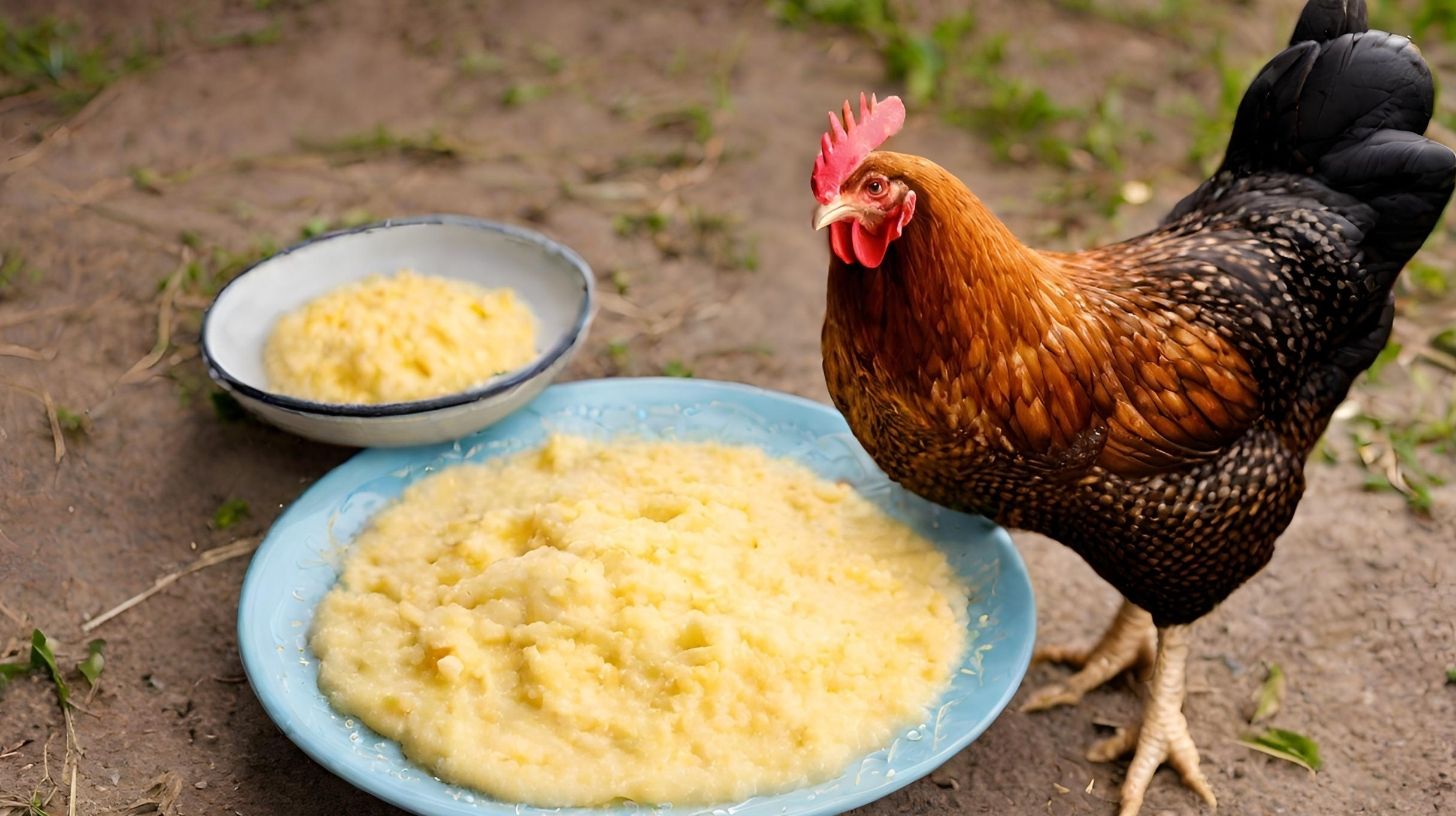 Are Grits Good for Chickens?
Are Grits Good for Chickens?
Grits are made from dried and ground corn, specifically cornmeal. This means they share a similar nutritional profile with other corn-based products.
The primary nutrients found in grits are:
- Carbohydrates – Grits are high in carbohydrates, which provide chickens with energy.
- Fiber – The corn in grits contains digestible fiber to support gut health.
- Calcium – Grits prepared with milk are a good source of calcium for strong eggshells.
- Iron – Essential for producing hemoglobin to transport oxygen.
- Small amounts of vitamin A, vitamin C and B vitamins.
In moderation, these nutrients can complement the rest of a chicken’s balanced diet. The carbohydrates offer quick energy while the fiber supports digestion.
Calcium is particularly valuable for hens producing eggs. Laying chickens have high calcium needs, and the calcium in dairy-based grits can contribute to strong eggshells.
Nutritional Benefits of Grits for Chickens
Here’s a closer look at some of the key nutrients grits can provide:
Carbohydrates – The carbohydrates in grits primarily come from starch. Chickens efficiently digest starch, breaking it down into glucose to fuel bodily processes. Their digestive systems are well-equipped to metabolize the carbohydrates from corn-based grits. In moderation, grits can be an excellent source of energy.
Fiber – Grits contain a type of fiber called corn bran, supporting healthy digestion in chickens. The gritty texture also provides digestive bulk, similar to insoluble fiber supplements. But too much corn bran can irritate the gut lining, so grits should only be fed occasionally.
Calcium – When prepared with milk and cheese, grits can contain sizable amounts of highly bioavailable calcium. This makes them a smart occasional treat for laying hens. Calcium from dairy products is readily absorbed to help form strong eggshells.
Iron – Necessary for producing hemoglobin to carry oxygen through the bloodstream, even small amounts of iron are important. The iron in corn-based grits contributes to chickens’ needs.
Potential Concerns of Feeding Grits
While grits can complement a balanced diet, there are also some potential downsides:
- Low in protein – Unlike corn, grits contain limited protein since the germ and bran are removed. Relying on grits could lead to deficiency.
- High in carbohydrates – Excessive starch from grains like grits may contribute to obesity and other issues. Moderation is key.
- May cause digestive upset – The high fiber corn bran irritates the gut in large amounts. Changes should be gradual.
- Nutritional deficiencies – Fed exclusively, grits are nutritionally inadequate. A varied diet is essential.
- Risk of boredom – Chickens may tire of any single food offered daily. It’s healthiest to provide diverse foods.
To avoid these risks, grits should always be fed in moderation as part of a balanced diet. Providing many different supplemental treats keeps chickens engaged and allows them to benefit from a wide range of nutrients.
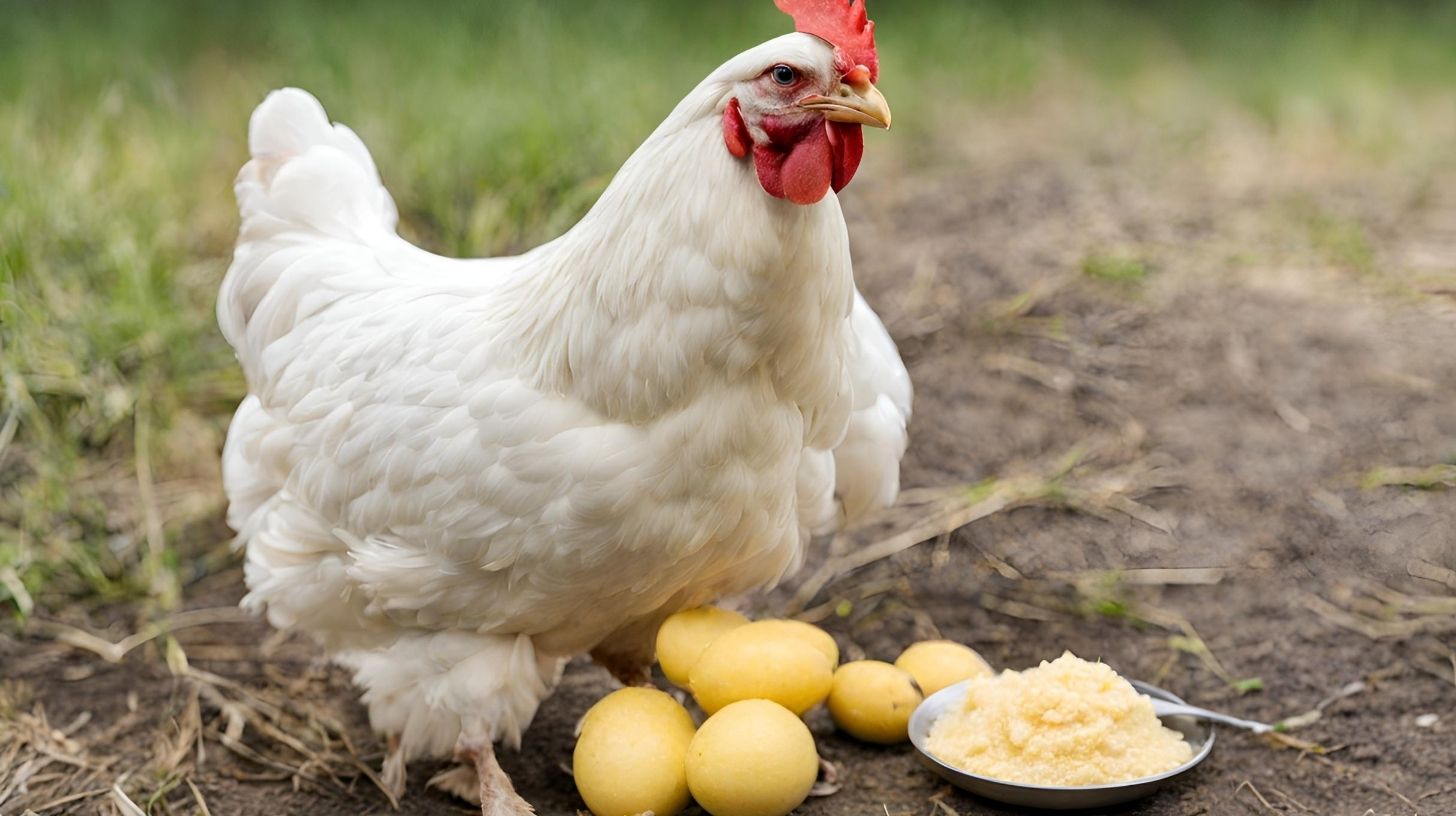 Can Chickens Eat Grits Raw or Uncooked?
Can Chickens Eat Grits Raw or Uncooked?
Chickens can eat both raw and cooked grits, but cooked grits are often easier for them to digest.
Raw grits straight out of the bag would be challenging for chickens to break down and utilize. The hard, dry kernels require more mechanical digestion.
By boiling or softening the grits first, they become easier for a chicken to digest. The starch absorbs moisture, partially gelatinizing it so the chicken’s digestive enzymes can more readily break it down.
Even when boiled, grits still retain a pleasantly chewy texture. But cooking makes their nutrients more bioavailable. Preparing the grits with milk, butter, or cheese adds even more nutrition.
If you do opt to feed raw grits, let them soak and soften in water ahead of time. This partial cooking by reconstitution removes some of the starch’s rawness.
For young chicks, finely crushed cooked grits may be safest. Their digestive systems are still developing, so softer grits prevent issues.
How Much Grits Can Chickens Eat?
Grits should be fed to chickens in moderation, not as a meal or main dietary component. About 1-2 tablespoons per chicken per day is a reasonable amount of cooked grits for a treat.
Leftover grits are a great way to share a small portion. Take any uneaten cooked grits from breakfast and allow chickens to finish them off!
When introducing any new food, start slowly with small servings given every 2-3 days. Observe how the chickens respond and ensure the grits are not causing digestive upset before increasing portions.
It’s healthiest for chickens when grits make up only a small part of their diet. The bulk of their nutrition should come from commercial feed and other whole food sources. Chicken feed is balanced to the bird’s requirements.
While the nutrients in grits complement feed, relying too heavily on grits could mean chickens don’t receive adequate nutrition. Variety is key for both optimal nutrition and preventing boredom.
Follow these tips when portioning out grits:
- Cook grits thoroughly before feeding to chickens.
- Start with 1 tablespoon per chicken every 2-3 days, gradually increasing if well-tolerated.
- Never replace feed entirely with grits or any single human food.
- Grits should represent <10% of daily intake.
- Discontinue grits if any signs of digestive upset.
- Provide free-choice insoluble grit if feeding a higher portion of cooked grits.
Can You Feed Chickens Grits Every Day?
It’s best not to feed grits, or any single human food item, to chickens daily. Chickens benefit most from a diverse diet.
Feeding grits every day risks boredom, since chickens enjoy novelty. They may stop eating them if grits become monotonous.
Daily grits could also lead to an imbalanced diet. As discussed above, grits are low in certain nutrients, especially protein. Over time, exclusively feeding grits could result in deficiency.
Finally, overfeeding starchy foods like grits may contribute to obesity and other health issues. Moderation is key, even with healthy treats.
For optimal nutrition and flock happiness, switch up treats frequently. Try oatmeal, rice, pasta, bread, fruits, and more on rotation.
Reserve grits for no more than once or twice a week. Keep chickens engaged with different surprises at treat time!
What Human Foods Can Chickens Eat?
Beyond grits, chickens can enjoy a wide variety of human food scraps and leftovers. Some other chicken-safe options include:
Grains – Cooked rice, whole wheat pasta, oats, baked goods like bread.
Fruits and Veggies – Berries, melon, banana, kale, broccoli, squash, peas.
Proteins – Small amounts of cooked egg, meat, canned fish.
Dairy – Plain yogurt, cheese, small amounts of milk.
The key is providing a wide variety of foods in moderation. Rotate through different food groups and options to offer a balanced, appealing diet.
Since chickens require significant protein, it’s ideal to pair grain or starch-based treats with produce, dairy or meat. Some smart combinations include:
- Cooked pasta with bits of cheese mixed in
- Cooked oatmeal with fresh berries
- Scrambled eggs with pieces of whole wheat toast
- Plain yogurt with seeds or chopped hardboiled egg
Avoid overly sugary, salty or spicy human foods, as well as processed items with preservatives. And always introduce new foods slowly and watch for any signs of digestive upset.
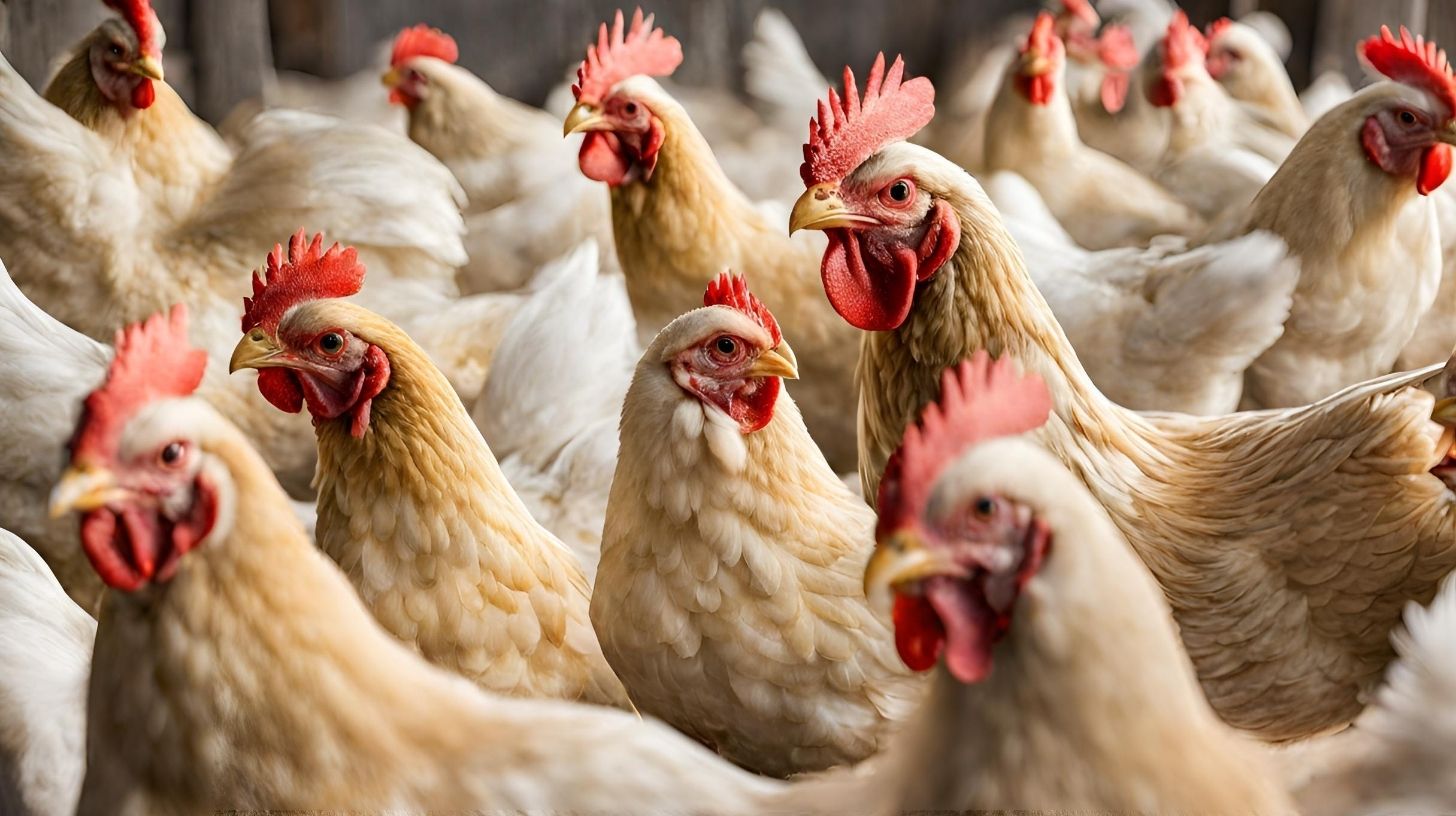 What Can Chickens Eat Besides Corn?
What Can Chickens Eat Besides Corn?
While chickens adore corn, relying too heavily on corn or corn-based products risks an imbalanced diet. Chickens should eat a diverse mix of grains, produce, protein and more.
Here are some healthy alternatives to try:
Grains – Wheat, barley, millet, rice, oats. Offer cooked or soaked to increase digestibility.
Fruits/Veggies – Squash, cabbage, kale, berries, apple, melons, peas, fresh or frozen.
Proteins – Mealworms, soldier fly larvae, crickets, cooked egg, canned fish, plain yogurt.
Misc – Sprouted seeds, herbs, leafy greens, household scraps.
Ideally, commercial feed or a complete chicken ration should form the base of their diet. Supplement with a wide variety of fresh foods for added nutrition and excitement.
Chickens also need insoluble grit to grind food in their gizzards. Offer a dedicated insoluble grit source if feeding more cooked or soft foods.
Are Grits Healthy for Chickens?
In moderation alongside a balanced diet, grits can be a nutritious, enjoyable treat for chickens. Chickens can safely eat grits both raw and cooked.
The biggest health risk with grits is relying on them too heavily. Grits lack critical nutrients like protein, so they cannot replace complete feeds.
As an occasional treat, however, grits provide useful carbohydrates, calcium and other nutrients. Chickens find the taste and texture appealing.
So feel free to let your flock indulge in some leftover grits! Just be sure to keep portions small and rotate in different treats for a healthy, varied diet.
FAQs About Feeding Grits to Chickens
Can chickens eat grits plain?
Yes, chickens can eat plain grits without any added ingredients. But for extra nutrition and flavor, try preparing grits with butter, cheese, milk or yogurt.
What’s the best way to cook grits for chickens?
Cook grits until soft and mushy, adding extra water if needed. Soaking grits overnight can also help soften them up before feeding to chickens.
How do I transition chickens to eating grits?
Start by offering just a spoonful per chicken every few days. Slowly increase the amount while monitoring for any digestive issues.
Why do chickens need grit?
Insoluble grit helps chickens grind and digest feed in their gizzard. Soluble grits don’t serve this purpose but offer nutritional value.
Do chickens like the taste of grits?
Most chickens love corn and will eagerly eat up grits! Their strong foraging instincts make them excited to try new foods.
Conclusion
Grits make a safe, nutritious supplemental food for chickens when fed in moderation. Their mild corn flavor and chewy texture appeal to most chickens. In reasonable portions as an occasional treat, grits can provide valuable carbohydrates, calcium and other nutrients.
Chickens can eat grits cooked or uncooked, but cooked grits offer greater digestibility and nutrition. Be sure to only feed grits in small amounts a few times a week, not as a daily meal replacement.
Focus on providing chickens with a diverse diet to support optimal health and happiness. With variety and moderation, grits can be a tasty part of your flock’s feeding regimen.
Welcome. I’m Adreena Shanum, the proud owner of this website, and I am incredibly passionate about animals, especially poultry. I founded adreenapets.com as a labor of love, stemming from my desire to share my knowledge and experiences with poultry enthusiasts worldwide.


